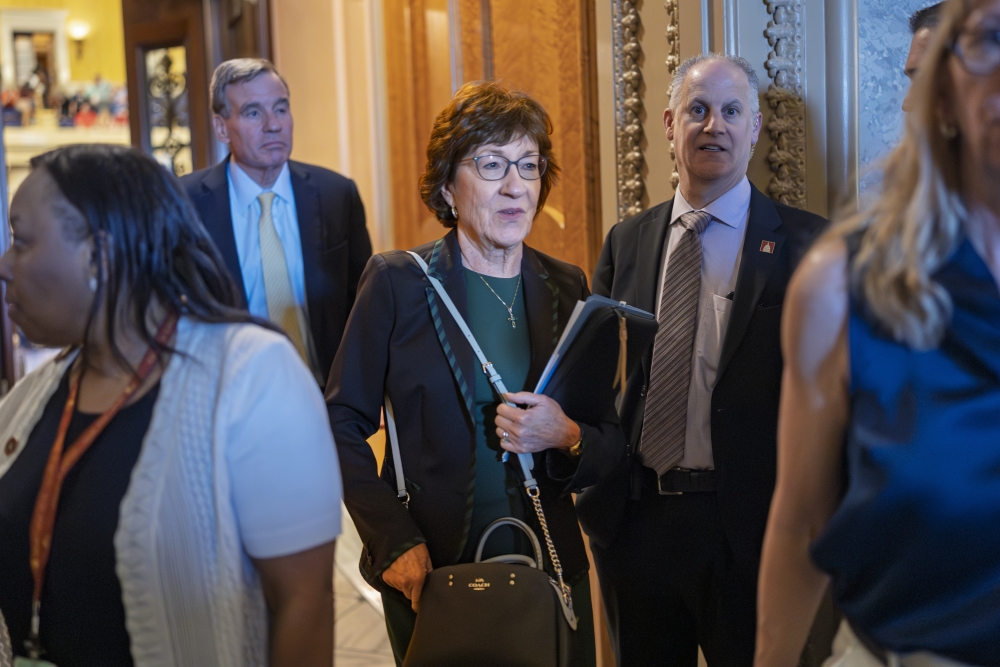President Donald Trump has ignited a fresh political battle, urging fellow Republicans to actively oppose Senator Susan Collins of Maine, marking a significant escalation in their long-standing, complex relationship. This directive came late Thursday night via a social media post, setting the stage for renewed scrutiny on Collins’ re-election bid and her legislative independence.
Collins, a prominent Republican known for her moderate stance, has consistently demonstrated her willingness to diverge from party lines, particularly on critical legislation favored by the former president. Her dissenting votes include opposition to a significant tax-and-spend bill that extended tax breaks for the wealthy while impacting Medicaid, and a substantial rescission package that sought to cut foreign aid and federal funding for public broadcasting. Both measures ultimately passed without her support, underscoring her independent legislative approach.
Trump’s explicit call to action, instructing Republicans to “vote the exact opposite” of Senator Collins, signaled a clear break in any perceived détente between the two influential figures. His late-night message, concluding with the rallying cry “MAKE AMERICA GREAT AGAIN!”, served as a direct challenge to her political alignment and her influence within the Republican Party.
In response, Senator Collins reiterated her commitment to her constituents and the nation, stating, “I cast each vote based on what is right for Maine and America. Sometimes that means I agree with the president and sometimes I disagree.” Her statement highlights her dedication to bipartisan principles and her independent decision-making process, a hallmark of her extensive career in the Senate.
Collins occupies a unique position as the sole Republican senator from New England and the only one facing re-election in a state that voted for former Vice President Kamala Harris in 2024. Her electoral vulnerability in a politically diverse state makes Trump’s public criticisms particularly impactful, potentially complicating her path to securing another term in the Senate.
Political analysts suggest that Trump’s social media broadside could signal the definitive end of a fragile truce with Collins, who had previously voted to impeach him following the January 6, 2021, events at the Capitol. Further public attacks from the former president could significantly impact her public image and challenge her electability among certain segments of the Republican base.
Mark Brewer, chair of the political science department at the University of Maine, offered a cautious perspective on the immediate implications of Trump’s post. Brewer noted the historical variability of Trump’s late-night pronouncements, suggesting they could range from mere “venting one-offs” to the initiation of a sustained campaign against the senator. The true nature of this criticism, he argued, would only become clear with time and subsequent political developments.
This renewed criticism also surfaces as Senator Collins, a leading figure on the appropriations committee, champions the integrity of the appropriations process against calls for increased partisanship from figures like Russell Vought, Trump’s former budget official. The White House, meanwhile, is reportedly exploring options for a more “MAGA-aligned” Republican challenger in Maine, exemplified by businessman Carmen Calabrese, who has publicly criticized Collins for her perceived “obstructionist” stance against the former president’s agenda.






Leave a Reply